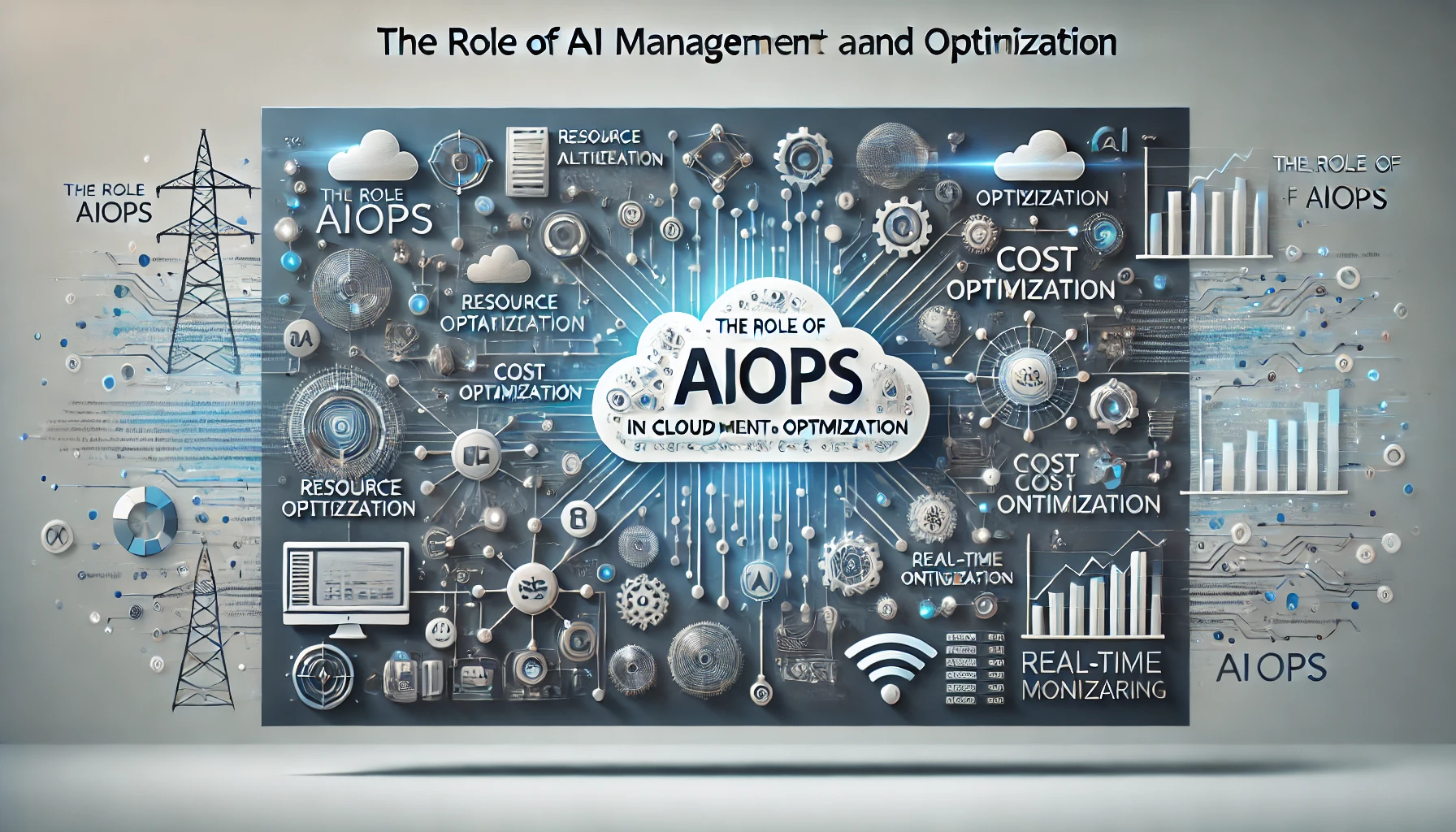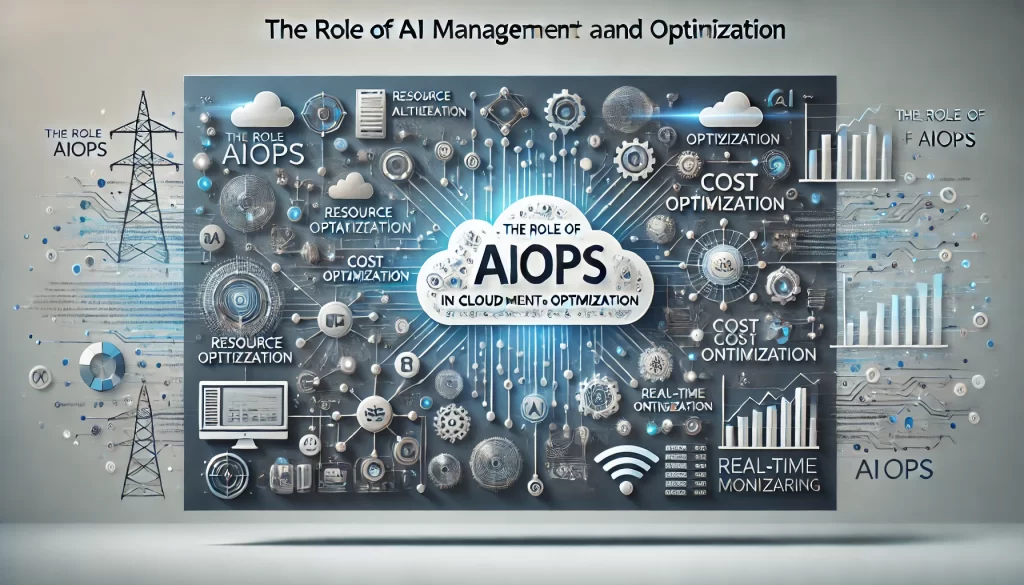
Upgrade & Secure Your Future with DevOps, SRE, DevSecOps, MLOps!
We spend hours scrolling social media and waste money on things we forget, but won’t spend 30 minutes a day earning certifications that can change our lives.
Master in DevOps, SRE, DevSecOps & MLOps by DevOps School!
Learn from Guru Rajesh Kumar and double your salary in just one year.

AiOps plays a pivotal role in cloud management and optimization by harnessing the power of artificial intelligence and machine learning to streamline operations, improve resource utilization, and enhance cost efficiency. In dynamic cloud environments, AiOps analyzes vast volumes of data from multiple sources, including performance metrics, usage patterns, and logs, to provide real-time insights and recommendations. It enables automated scaling, workload balancing, and anomaly detection, ensuring optimal performance while minimizing waste. By proactively identifying underutilized resources and suggesting cost-saving measures, AiOps helps organizations manage cloud expenses effectively. Furthermore, its ability to predict and resolve issues before they impact operations enhances reliability, making AiOps an essential tool for modern cloud optimization strategies.
Challenges in Cloud Management
1. Complex Multi-Cloud Environments
Organizations often use multiple cloud providers (e.g., AWS, Azure, Google Cloud) for redundancy and scalability. Managing these diverse environments requires significant effort and expertise.
2. Unpredictable Costs
Dynamic scaling and resource allocation in cloud environments can lead to unpredictable billing, making cost management a challenge.
3. Limited Visibility
Traditional monitoring tools often fail to provide real-time insights into resource utilization, leading to inefficiencies and potential downtime.
4. Manual Interventions
Resource allocation, workload balancing, and issue resolution often require manual effort, slowing down response times and increasing the risk of errors.
The Role of AiOps in Cloud Management and Optimization
AiOps addresses these challenges by automating processes, providing predictive insights, and enabling proactive decision-making. Here’s how AiOps transforms cloud management:
1. Enhanced Cloud Monitoring
AiOps continuously monitors cloud environments, analyzing metrics, logs, and events in real-time to provide actionable insights.
Key Features:
- Real-Time Analytics: Tracks performance metrics for applications, databases, and networks.
- Anomaly Detection: Identifies unusual patterns or behaviors that indicate potential issues.
- Unified Dashboards: Provides a single view of resources across multiple clouds.
Use Case:
A retail company using a multi-cloud setup implemented AiOps to monitor application performance during peak shopping periods. The platform detected a latency increase in their payment gateway and automatically scaled resources, preventing service disruptions.
2. Cost Optimization
Cloud costs can quickly spiral out of control without proper management. AiOps helps organizations optimize costs by identifying underutilized resources, right-sizing instances, and predicting future resource needs.
Benefits:
- Cost Transparency: Provides detailed insights into spending across cloud services.
- Resource Optimization: Suggests downsizing or terminating unused resources.
- Budget Forecasting: Predicts future costs based on usage trends.
Research Insight:
According to a study by Gartner, companies that implement AIOps for cost optimization in cloud environments reduce unnecessary spending by up to 30%.
3. Automated Resource Management
AiOps automates resource allocation and workload balancing to ensure optimal performance and reliability.
Capabilities:
- Dynamic Scaling: Automatically adjusts resources based on real-time demand.
- Workload Distribution: Balances workloads across servers to prevent bottlenecks.
- Self-Healing Systems: Detects and resolves issues such as overloaded servers or misconfigurations.
Example:
A SaaS company faced frequent outages due to uneven workload distribution. By implementing AiOps, their platform dynamically redistributes workloads across available resources, eliminating downtime and improving user satisfaction.
4. Proactive Incident Management
AiOps uses predictive analytics to identify potential issues before they impact operations, enabling proactive resolution.
Features:
- Failure Prediction: Detects early signs of failures in applications or infrastructure.
- Automated Responses: Executes predefined actions, such as restarting services or re-routing traffic.
- Continuous Learning: Learned from past incidents to improve future predictions.
Use Case:
An AI-driven video streaming service used AiOps to monitor its cloud infrastructure. The platform predicted an impending storage issue and automatically provisioned additional space, ensuring uninterrupted service during a popular event.
5. Improved Security and Compliance
AiOps enhances cloud security by identifying vulnerabilities and ensuring compliance with regulatory standards.
Benefits:
- Threat Detection: Identifies suspicious activities in real time.
- Compliance Monitoring: Ensures adherence to data protection regulations such as GDPR and HIPAA.
- Automated Alerts: Notifies teams of potential security risks.
Applications Across Industries
- Healthcare
- Managing cloud-hosted electronic health records (EHR) systems.
- Ensuring uptime for telemedicine platforms.
- E-Commerce
- Optimizing cloud resources during seasonal sales.
- Enhancing customer experience with real-time scalability.
- Finance
- Securing cloud environments for sensitive financial data.
- Monitoring application performance to ensure seamless transactions.
- Media and Entertainment
- Managing high-demand streaming services.
- Scaling resources dynamically during live events.
AiOps Training and Certification by theaiops.com
To unlock the full potential of AiOps in cloud management, organizations need skilled professionals with expertise in AI, ML, and cloud operations. Theaiops.com offers comprehensive training and certification programs tailored for individuals and enterprises.
Key Offerings:
1. Training Programs
- Core Topics: Cloud cost optimization, dynamic scaling, and automated resource management.
- Hands-On Labs: Real-world scenarios with tools like Datadog, Splunk, and Prometheus.
- Flexible Learning: Online, in-person, and hybrid courses to fit diverse schedules.
2. Certifications
- Recognized Credentials: Validate expertise in AiOps and cloud optimization.
- Specialized Tracks: Focus on multi-cloud management, security, or predictive analytics.
3. Consulting Services
- Tailored Solutions: Customized AiOps strategies for cloud environments.
- Ongoing Support: Guidance for implementation and scaling.
4. Freelancing Opportunities
- Connect certified professionals with organizations for project-based roles or long-term engagements.
Why Choose AiOps Training with theaiops.com?
- Expert Trainers: Led by experienced professionals like Rajesh Kumar from RajeshKumar.xyz.
- Practical Insights: Courses designed around real-world challenges and use cases.
- Career Advancement: Equips learners with in-demand skills for cloud management and AiOps roles.
- Global Community: Access to a network of professionals and resources.
How DevOpsSupport.in is helping in DevOps, SRE, and DevSecOps Services.
DevOpsSupport.in helps businesses enhance their IT operations with specialized services in DevOps, Site Reliability Engineering (SRE), and DevSecOps. They streamline software development and deployment through CI/CD automation, ensure system reliability with monitoring and incident management, and integrate security at every stage with automated security testing and compliance frameworks. By optimizing processes, improving uptime, and ensuring security, they help organizations accelerate delivery while minimizing risks and maximizing efficiency.